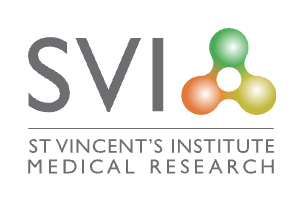
Posted: 11 December 2023
I am very proud to announce the results of our BANDIT trial – a world-first clinical trial investigating the use of an existing immunotherapy drug (baricitinib) to slow or stop the killing of insulin-producing beta cells in the pancreas.
Published today in the New England Journal of Medicine, our research is the first to show that type 1 diabetes can be slowed or even stopped with a daily tablet for those who are diagnosed early.
Getting this research project to the clinical trial stage was a major milestone for SVI and a testament to the dedication and perseverance of many people, including you.
Biomedical research is a team pursuit, and we are very grateful to have had you on our team. Thank you.
This clinical trial, which launched in late 2020, was conducted with wonderful collaborators, including:
• Professor Fergus Cameron (Royal Children’s Hospital)
• Professor Jennifer Couper (Women’s and Children’s Hospital, Adelaide)
• Professor Richard MacIsaac (St Vincent’s Hospital, Melbourne)
• Associate Professor John Wentworth (Royal Melbourne Hospital)
The research which led to the BANDIT trial
BANDIT is the culmination of more than 30 years of research focusing on understanding the interaction between insulin-producing cells (beta cells) and immune cells (T cells).
In the lab, Professor Helen Thomas and I, along with our talented and dedicated team, found that a certain class of drug called JAK inhibitors disrupted the interaction between beta cells and T cells. This meant, in theory, that these types of drugs could potentially prevent type 1 diabetes from progressing.
The next step was to see if this worked in humans, which led to the BANDIT clinical trial.
BANDIT
• The clinical trial tested one of these JAK inhibitors, a tablet called baricitinib.
• Baricitinib is widely used to treat rheumatoid arthritis and is well tolerated.
• We tested 91 participants over the course of one year.
• Of these, 60 were given baricitinib and 31 were given a placebo. All trial participants were aged between 10 years old and 30 years old and started on the trial within 100 days of having been diagnosed with type 1 diabetes.
• Participants continued with their prescribed insulin therapy throughout the duration of the study.
• The trial found that baricitinib, when taken daily, could in fact slow or even stop the progression of type 1 diabetes by protecting the remaining beta cells from being killed by immune cells.
Why this is significant
• This is a world-first discovery and, once approved in the clinic, will provide a major step change in how type 1 diabetes is treated.
• Insulin has been used for more than 100 years but nothing can do the job of regulating blood glucose the way the body can. By preserving the remaining insulin-producing cells, the body can help regulate its own blood glucose, easing the reliance on insulin.
• Baricitinib, is well tolerated, and already approved for daily use in rheumatoid arthritis.
• While participants were on the treatment, they had improved blood glucose control and reduced reliance on insulin. This is significant as it has the potential to reduce the arduous constant monitoring of blood glucose.
• This will have important real-world consequences – it could provide fundamental improvement in the ability to control type 1 diabetes.
Thanks to those who made this trial possible
JDRF International and JDRF Australia, who funded the trial, have demonstrated their faith in SVI’s research and a commitment to supporting research to advance treatments for type 1 diabetes. We are grateful for their assistance and enthusiasm for this project.
We have also been assisted by funding from the Federal Government’s National Health & Medical Research Council (NHMRC) and the Victorian State Government’s Operational Infrastructure Support Program.
We also owe the success of this outcome to the people living with type 1 diabetes who participated in the trial and their families who were with them each step of the way. We offer them our sincerest thanks.
Of course, the ongoing support we get from you, our wonderful SVI community, has helped us in many ways. Whether it be through your enthusiasm, philanthropic support or by donations to our Living Biobank, you have made a difference to our researchers and to people with type 1 diabetes.
We have also produced an animation to explain more about the trial and its results.
Thanks to you all for your support, it is key to our ability to undertake biomedical research that makes a difference to those in need.



